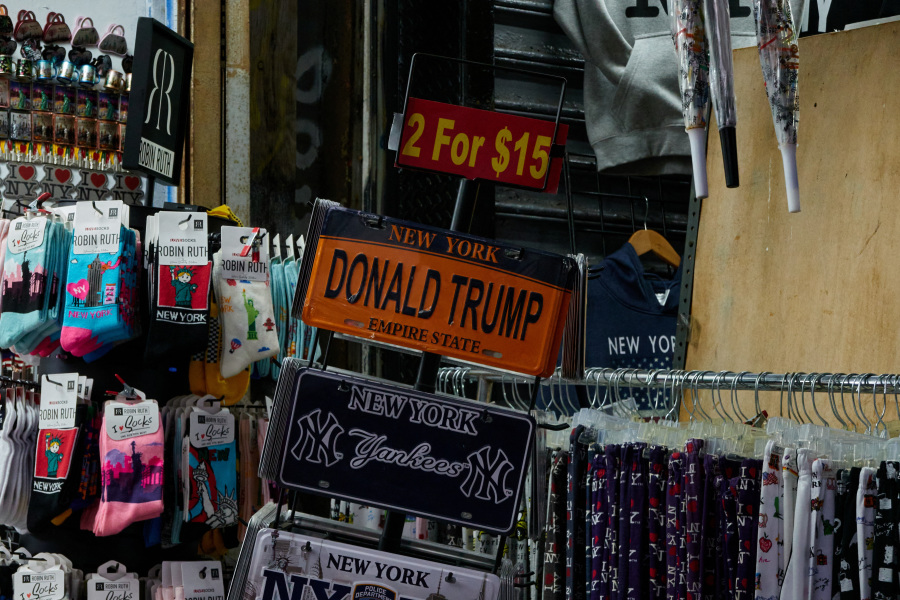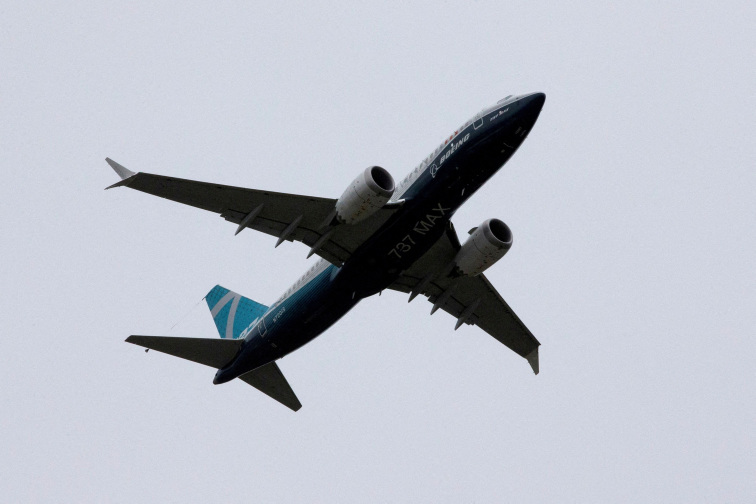NEW YORK (Reuters) - Donald Trump lost to Kamala Harris in every voting precinct in Manhattan – except one.
The single exception was in Two Bridges at the end of the historic Lower East Side, on a block that once served as home to Soviet spies Julius and Ethel Rosenberg, and has been a landing spot for Jewish, Italian and, more recently, Chinese immigrants.
A native New Yorker, Trump's victory in a voting district in the borough of Manhattan - a Democratic stronghold - was his first since he started running for president in 2016. He won by a margin of 16 votes out of nearly 500 ballots cast, according to preliminary results, published by the city election board after 99% of votes in the district had been counted.
Counting the vote for the 2024 election in America's most populous city is finishing up this week. By Saturday, the results should be certified at a local level all over New York state.
Across New York City, Trump won 30% of the total vote for president. That was a 7-point improvement from how he performed against Joe Biden in 2020. Most of his gains came from fewer Democrats turning out for Harris. She underperformed Biden in every borough of the city, losing about a quarter of his votes, according to the data.
Trump's Two Bridges win came in a precinct that consists of the western part of a giant apartment complex near the Brooklyn Bridge, called Knickerbocker Village. Built in the 1930s as an affordable housing development, rent prices in the complex are still protected from significant increases by city laws in exchange for tax exemptions for the owners of the complex.
At the height of their espionage careers after World War II, the building was home to the Rosenbergs, who were executed in 1953 for passing secret information to the Soviet Union, including classified details about the nuclear bomb.
In 2015, new documents were declassified suggesting there was not enough evidence to justify Ethel Rosenberg's execution. The Rosenbergs' orphaned sons have long campaigned for her official exoneration.
Today, the block borders Chinatown to the north, and nearly 80% of its population is Asian with the remainder being mostly white, according to the 2020 census.
On a fall morning last week, dozens of Chinese men and women were entering or leaving the apartment complex through a well-kept, private inner yard, guarded by security personnel. Many residents told Reuters reporters they did not speak any English.
One of them, restaurant worker Yu Lin, 62, said in Mandarin she had voted for Trump.
"We feel confident in Trump," she said. "We believe he will improve the lives of ordinary people, and possibly raise the quality of life."
The median annual household income among residents of the pro-Trump block was around $25,000, four times lower than the median household income in Manhattan, according to census data.
Lin said her main source of information is the Chinese segment of YouTube. Several other residents of Knickerbocker Village also said they read and watch news exclusively in Chinese.
In the building's laundry room, an elderly man was reading a newspaper - the Chinese edition of The Epoch Times, a right-wing print publication by followers of the Falun Gong spiritual movement that originated in China and was later banned there. Its output tended to steer toward support for Trump, Reuters previously reported.
A non-Chinese resident of the block, 49-year-old Sal Miro, said he also had voted for Trump.
"We needed a change," said Miro, who works in building maintenance. "We need security and safety in our neighborhood and all around the country, with open borders, there's crime all over and time for change."
The centerpiece of Trump's reelection bid was a promise to fight what he called "migrant crime" and deport record numbers of immigrants. He also pledged to slap hefty tariffs on Chinese imports as part of a package of "America First" trade measures.
Trump won 251 votes among the residents of the block while 235 ballots went for Harris, who secured nearly 68% of votes overall in New York City and 81% in Manhattan alone.
Despite losing the city, her opponent boosted his support in all five boroughs, most significantly in the Bronx, where his share of the vote almost tripled, reaching nearly 27% compared to 9% in 2016. Trump won the least populated, most politically conservative borough - Staten Island.
Harris' supporters in Knickerbocker Village did not expect the vice president to lose, although they were aware that many of their neighbors voted for Trump.
Waiter Allen Lee, 50, has lived on the block for 12 years. "I don't like Trump," he said. "I can't believe that someone like that can be a president."
He said he knew Trump was popular among Chinese residents.
Retired hairdresser Mei Ling Ng, 74, said in Mandarin she had voted for Harris, only because she opposed Trump. She paused to greet a neighbor, a non-Chinese woman who was passing by.
"He should have won!" her neighbor said of Trump. "Goodbye! Go Trump!"
(Reporting by Maria Tsvetkova, additional reporting by Bing Guan and Echo Wang; editing by Paul Thomasch)











News magazine bootstrap themes!
I like this themes, fast loading and look profesional
Thank you Carlos!
You're welcome!
Please support me with give positive rating!
Yes Sure!